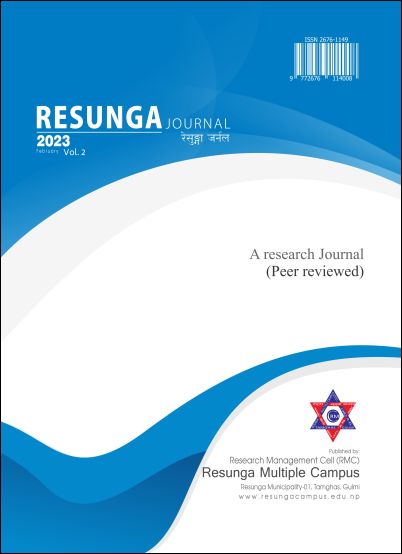Capital Market in Nepal: Integration, Advantages, and Challenges
DOI:
https://doi.org/10.3126/resungaj.v2i1.64039Keywords:
Primary market, Secondary Market, Finanical integration, Financial instruments, securitiesAbstract
The Nepalese capital market has been growing these days recently. However, investors and potential investors have been disappointed by the lack of financial tools, low market diversification, and fewer investment opportunities. Low-level market participation in real estate is a consideration in the Nepalese context participants hold. Companies in the real sector account for only around 20% of all listed companies. Because banks dominate the secondary market, the Nepalese capital market does not truly represent the economy. In the secondary market, public sentiment is vital. Internet, trade reporting, and credit rating activities have supported the capital market's expansion. The government and regulator must collaborate to solve current capital market difficulties.




